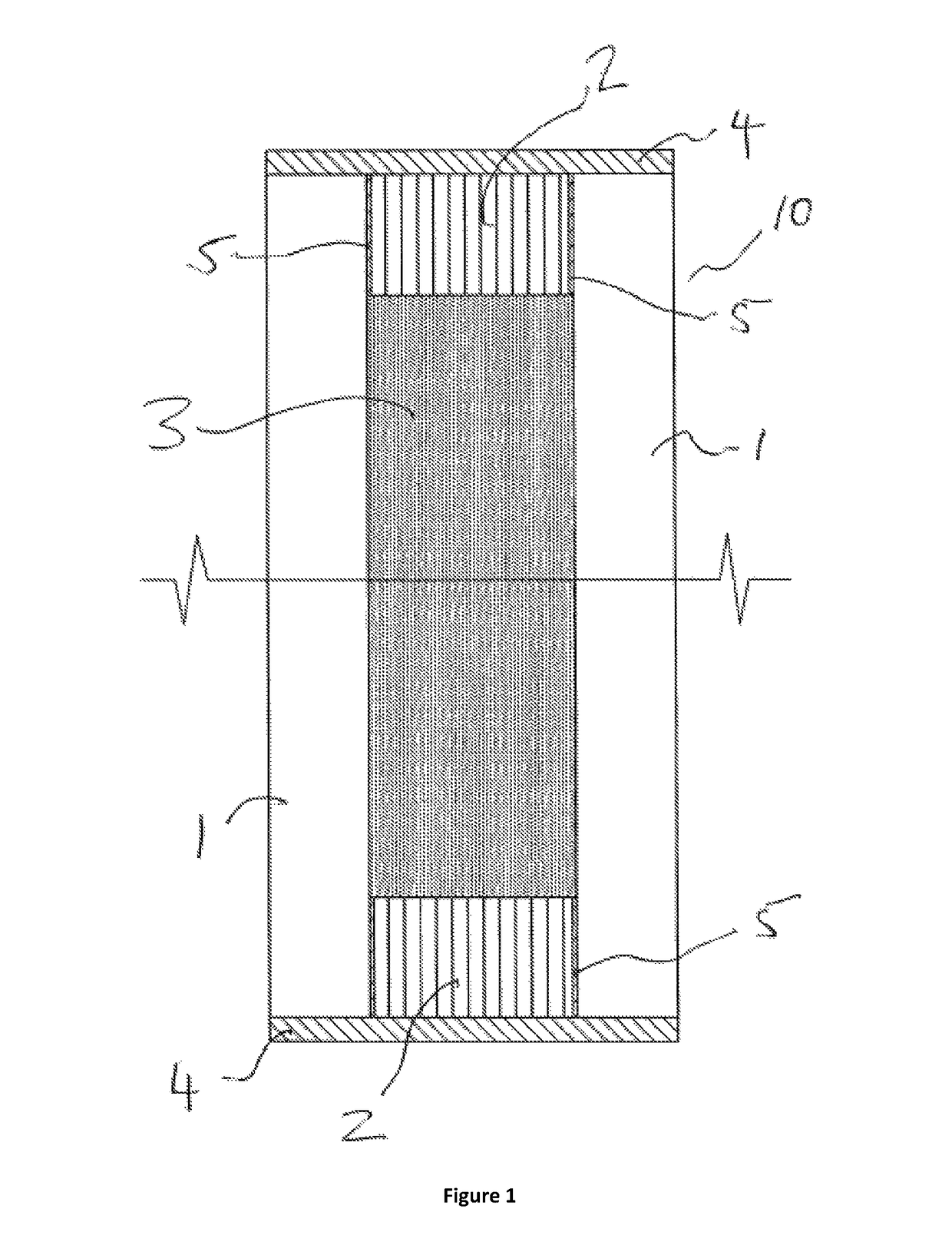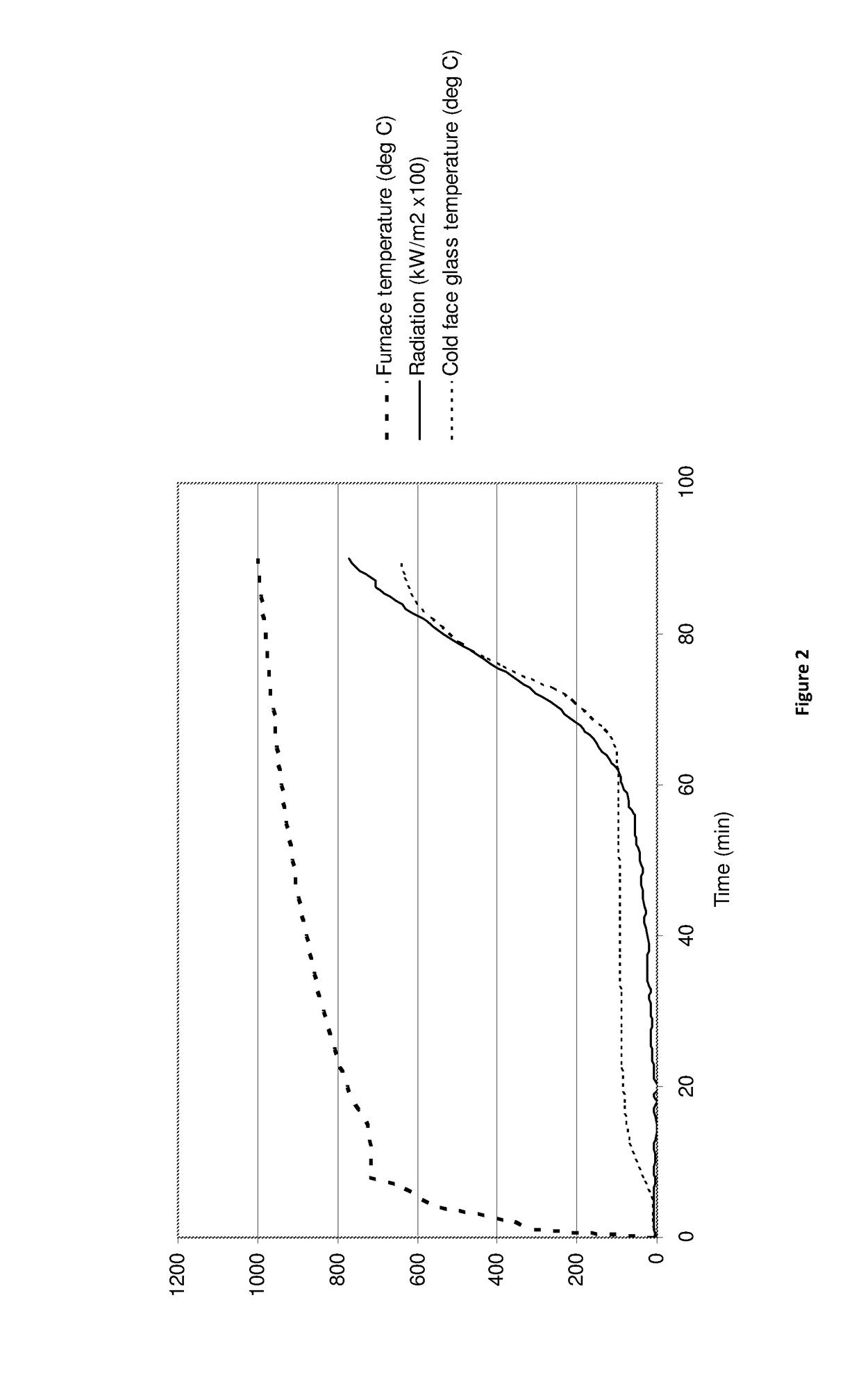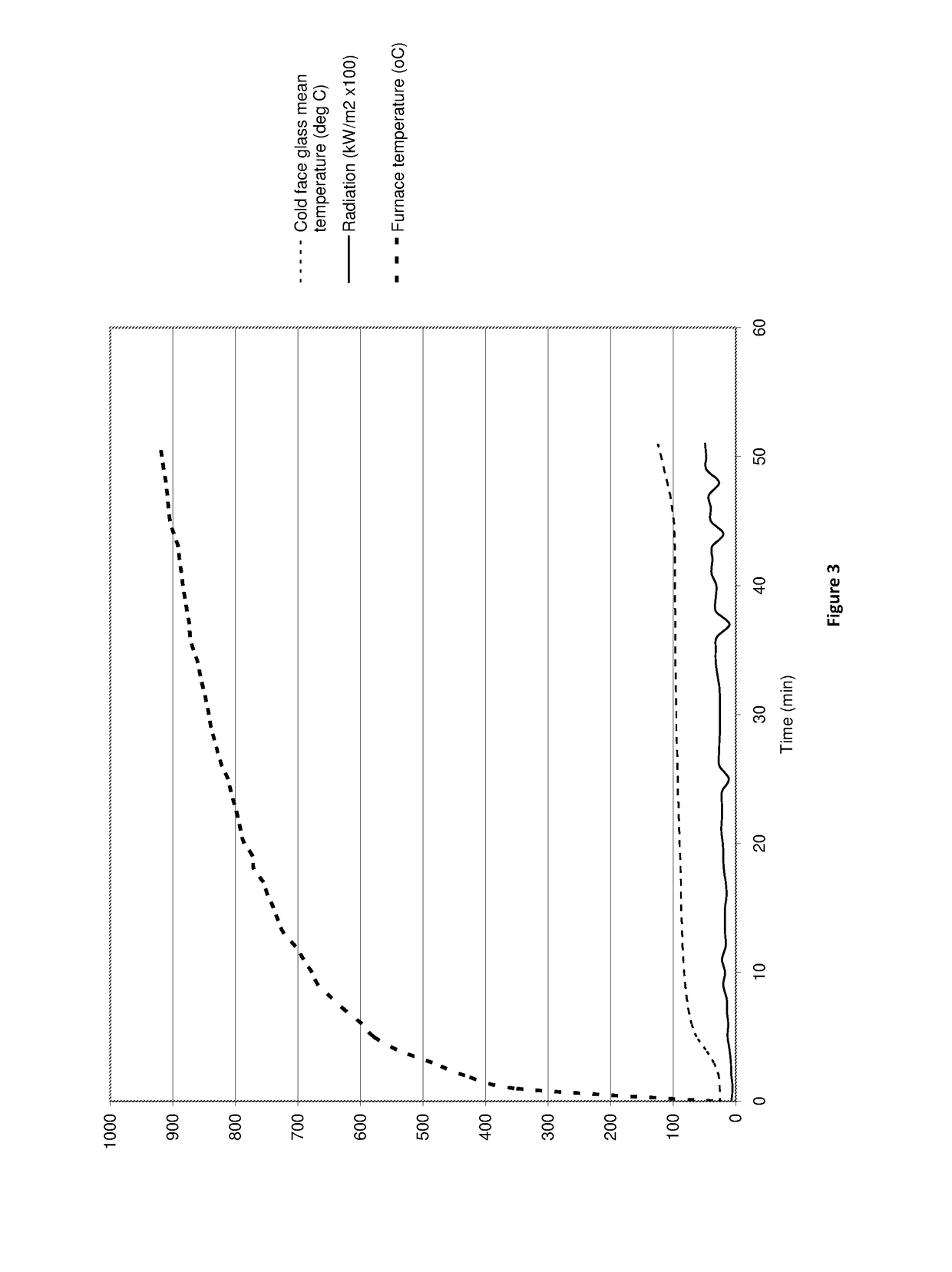Fire resistant glazing unit
a glazing unit and fire-resistant technology, applied in the direction of coatings, layered products, chemical instruments and processes, etc., can solve the problems of poor fire resistance of glazing, loss of integrity, and inconvenient use, and achieve excellent hydrogel interlayer performance, thin glazing units, and durable
- Summary
- Abstract
- Description
- Claims
- Application Information
AI Technical Summary
Benefits of technology
Problems solved by technology
Method used
Image
Examples
examples
[0246]Embodiments of the present invention, and relevant tests performed thereon, are now described in detail. It will be understood by those skilled in the art that the invention is not limited by the examples which follow, and that the examples support the broader applicability of the invention.
The Glazing Unit
[0247]An embodiment of a glazing unit in accordance with the invention is illustrated in FIG. 1, which shows a cross-sectional view of a fire-resistant glazing unit. The glazed unit 10 has two parallel opposed rectangular panes of glass 1 separated at their peripheries by a spacer 2; an internal space 3 enclosed by the two opposed panes of glass 1 and the spacer 2; a cured hydrogel interlayer 3 filling the internal space 3; a secondary seal 4 comprising a suitable adhesive, such as polysulfide or a hot melt sealant, and a primary seal 5 comprising a suitable adhesive, such as butyl or an acrylic tape adhesive.
[0248]Each pane of glass 1 is typically toughened glass or float g...
specific examples
[0267]The following examples are embodiments of gelling compositions of the invention. Each gelling composition was prepared as described and subsequently incorporated into glazing units, using the above described methods, to provide glazing units containing the relevant cured gels within their internal spaces. Each glazing unit was then tested, using the above described test protocols, the results of which are presented below alongside a description of the corresponding gelling compositions and also in the Summary section which follows the Examples. When glass is referred to with the notation x / y / z, this refers to the thicknesses of the glass / interlayer / glass respectively.
example 1
omposition 1 (GC1)
[0268]A gelling composition (GC1) was prepared using the ingredients listed below:
[0269]
IngredientM.W.% w / wSupplierWater1851.387MgSO4•7H2O246.4731.000Magnesia Ltd,(Magnesia 4281)LuneburghAcrylic Acid72.067.000Merck ChemicalsAcetic Acid60.057.430Merck ChemicalsMagnesium Oxide, low40.33.160Magnesia Ltd,iron (Magnesia 298)LuneburghIrgacure 184204.30.009Ciba specialityChemicalsN,N′-154.170.014Merck ChemicalsMethylenebisacrylamide
[0270]A flask fitted with an agitator was charged with MgSO4.7H2O (31 g) and 51.387 g of distilled water. A clear aqueous solution was obtained after stirring for 10 minutes. To this clear aqueous solution was added acetic acid (7.43 g), acrylic acid (7 g), N,N′-Methylenebisacrylamide (0.014 g) and Irgacure 184 (0.009 g) and the mixture was allowed to stir until a clear solution obtained. Finally 3.16 g of MgO was added. The resultant turbid milky suspension was stirred for 2 hours at 40° C. to obtain a clear solution.
[0271]The solution was all...
PUM
| Property | Measurement | Unit |
|---|---|---|
| temperature | aaaaa | aaaaa |
| temperature | aaaaa | aaaaa |
| pH | aaaaa | aaaaa |
Abstract
Description
Claims
Application Information
 Login to View More
Login to View More - R&D
- Intellectual Property
- Life Sciences
- Materials
- Tech Scout
- Unparalleled Data Quality
- Higher Quality Content
- 60% Fewer Hallucinations
Browse by: Latest US Patents, China's latest patents, Technical Efficacy Thesaurus, Application Domain, Technology Topic, Popular Technical Reports.
© 2025 PatSnap. All rights reserved.Legal|Privacy policy|Modern Slavery Act Transparency Statement|Sitemap|About US| Contact US: help@patsnap.com



